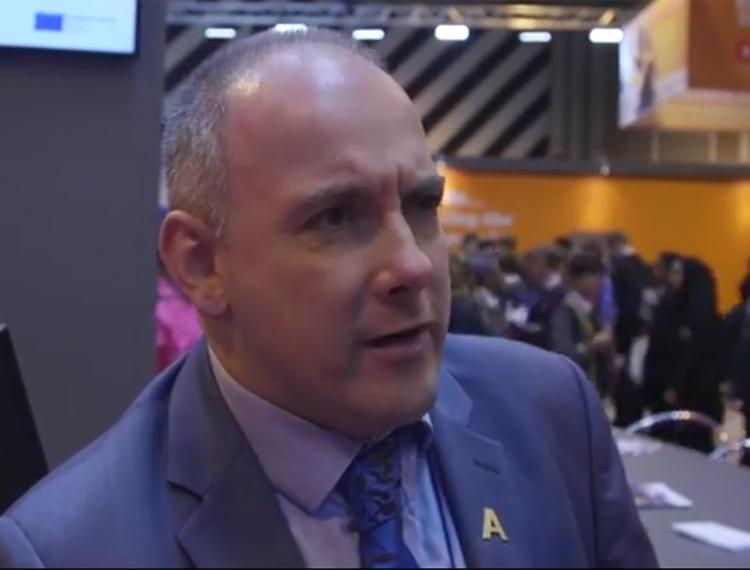Rethinking Assessment: GCSEs have had their day – Sector Response

The Chair of the Education Select Committee, Robert Halfon MP, will call for a radical re-think of England’s education system today (11 February 2019), including abandoning GCSEs for 16-year olds.
Young people need to develop skills alongside subject knowledge to thrive in our increasingly automated and digital age, says the MP for Harlow. He is advocating a holistic baccalaureate at age 18 which recognises academic and technical skills, and personal development.
A YouGov poll commissioned by education charity the Edge Foundation, suggests parents in England and Wales with children 18 and under would support such a move with almost three-quarters (73%) saying they believe there is too much emphasis on exam grades achieved in secondary school.
Robert Halfon will address an audience drawn from the education sector at the Cabinet War Rooms in London. He contends that whilst a core of knowledge is essential, the overwhelming emphasis on a ‘knowledge-rich curriculum’, through performance measures like the EBacc, has pressurised teachers to train to the test, focusing on rote learning above skills such as communication, critical thinking, problem-solving and team-working.
Research from leading business organisations shows that employers consistently value such skills above exam qualifications.
He also notes that those pressures extend to pupils, which other commentators have said risks the creation of a ‘troubled generation’, reflecting growing parental concern about the impact of high-stakes exams on their children.
The YouGov poll found that 82% believe that the pressure to perform well in GCSE exams can impact negatively on children’s mental health and wellbeing.
 Robert Halfon MP says:
Robert Halfon MP says:
“I fully support the need for every young person to be able to access through their schooling, a working knowledge of our cultural capital, our history and our literature.
“But it is also essential that we are developing our next generation of engineers, entrepreneurs and designers. All young people should have access to the technical and creative subjects that will give them the skills that employers are looking for. These are not ‘soft skills’ developed at the expense of knowledge, but the essential skills that will enable young people to interpret, manipulate and communicate that knowledge. We must move from knowledge-rich to knowledge-engaged.”
 Edge Foundation Chief Executive, Alice Barnard, says:
Edge Foundation Chief Executive, Alice Barnard, says:
“I think Robert is reflecting the concerns not only of parents, teachers and pupils themselves, but employers and business leaders from across all sectors. Technology is moving at such a rapid pace and change happening so quickly, we are failing young people if we do not enable them to develop the adaptability and the critical skills they need now and in the future.
“But this is about far more than just generating a competent workforce. Forward thinking schools we are working with consistently demonstrate that engaging students in creative learning, rather than just schooling them in factual recall, raises attainment, aspiration and fosters personal growth. It is these qualities and aptitudes that will shape our future engineers, designers, artists, inventors and innovators.”
 Peter Finegold, Head of Education and Skills at the Institution of Mechanical Engineers, said:
Peter Finegold, Head of Education and Skills at the Institution of Mechanical Engineers, said:
“One way of ensuring that more young people keep their options open for longer would be to introduce a broader baccalaureate – commonplace in most developed economies. The Institution has previously highlighted how the narrow ‘high stakes’ choice of three A-levels at aged 16 effectively means psychologically opting out of other subjects at 14 – often limiting future opportunity.
“Not only would Robert Halfon’s proposed changes benefit engineering, they would also ensure that young people made better choices leading to a fulfilling career in a whole range of sectors.”
 Kevin Courtney, Joint General Secretary of the National Education Union, said:
Kevin Courtney, Joint General Secretary of the National Education Union, said:
“GCSEs were designed at a time when it was usual for students to leave school at 16. However times have changed and the education system should change to reflect this. As students are expected to remain in full time education or training until 18 the need for high-stakes qualifications at 16 does not exist.
“Furthermore, the National Education Union has long called for routes which encompass both academic and technical options for students and this is a recommendation we strongly support.
“Heading towards qualifications which enable flexibility between vocational and academic pathways at the end of full-time education is a sensible and welcome suggestion, more suitable for modern times. Such a change would need to be planned for and introduced with the full involvement of the profession.”
A DfE spokesperson said:
“Our world class A Levels were designed with direct input from subject experts and universities to ensure young people leave school with the knowledge and skills they need to go on to higher education or get job.
“But A Levels are not the only option for young people post-16. We are transforming technical education so there are range of high quality choices on offer. This includes our new high quality apprenticeships developed directly with employers so that young people gain the skills they demand.
“We are also introducing new T Levels from September 2020 – the technical equivalent to A Levels –designed with over 200 leading employers so that they meet the needs of industry and students are learning the skills and getting the experience needed to land a great job in a skilled profession, go onto a higher level apprenticeship or university.”
Key points from Robert Halfon’s Rethinking Assessment speech:
- Replace GCSEs at 16 with a holistic Baccalaureate at 18 which reflects a young person’s academic and creative achievements, alongside skills and personal development
- Recognise the value of Further Education colleges and ensure they are properly funded
- Give teachers back autonomy in the classroom; more high quality CPD; enable them to develop projects in partnership with local businesses and community organisations, to bring learning to life
- Measure schools by completion of the baccalaureate at 18 and the destinations of their pupils in the years after leaving; make apprenticeships a gold standard destination
- Question the effectiveness and value for money provided by the Careers and Enterprise Company (CEC) “who are spraying money around like confetti”
- Despite skills shortage vacancies doubling since 2011 to 226,000, in 2017, latest figure from ONS show in the first quarter of 2018, there were 320,000 young people aged 16-14 who were NEET and unemployed.
The event marks the launch of the Edge Future Learning Project Based Learning Toolkit for teachers and schools.
About the Edge Foundation: An independent education charity which via its research, policy and campaign work is shaping the future of education. Edge believes that we all need to be equipped with the skills that today’s global, digital economy demands, through a broad and balanced curriculum, including technical and creative subjects, excellent careers guidance and strong links between employers and education.

Responses